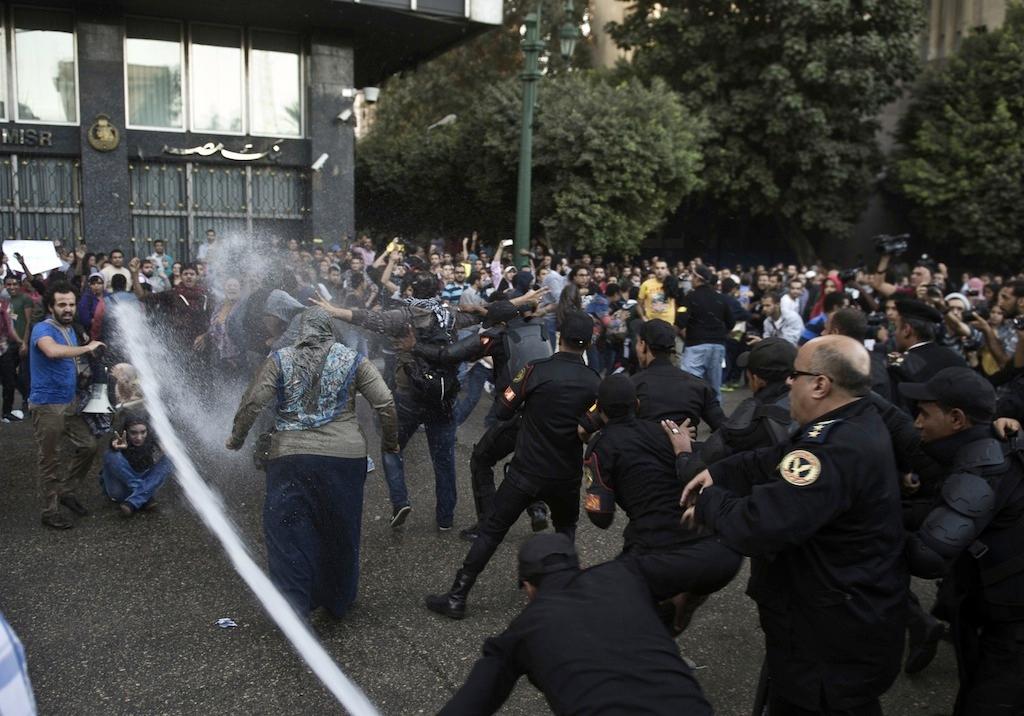Egypt police clash with demonstrators as government bans protests
Egyptian policemen use a water canon to disperse protesters during a demonstration organized by human rights group ‘No Military Trials for Civilians’ in front of the Shura council in downtown Cairo on November 26, 2013.
Egyptian police clashed with a small number of protesters in central Cairo on Tuesday night, just days after the country's interim president signed a controversial law restricting public demonstrations.
Tear gas and fire hoses were released on about 100 demonstrators who oppose articles allowing military trials in the draft constitution currently being negotiated.
About 70 of the secular protesters, who oppose both the military government and the Muslim Brotherhood, were detained after police accused them of throwing rocks.
The new anti-protest law requires demonstrators seek approval three days in advance or face heavy fines or jail time for taking to the streets.
More from GlobalPost: Backlash to Egypt's new protest law hits Cairo's streets
Tuesday's protests were the first to see arrests in the wake of the new provision.
Among those arrested on Tuesday were the prominent activist Mona Seif, who runs a campaign against the use of military trials and, Ahmad Harara, who was shot in the face during the uprising against Mubarak and lost both his eyes.
About 13 of the 50 representatives on the committee in charge of writing Egypt's new constitution said they would halt their work until the activists were released.
Egyptian authorities have said they will look into the anti-protest law after it came under pressure from human rights groups, the United Nations and the US government.
For some, the new law is evidence of creeping authoritianism back into the Egyptian government after the ouster of the democratically-elected president Mohamed Morsi.
The New York Times pointed out that the muted condemnation against the protest law has shown how far Egyptian public opinion has changed in the last year.
The story you just read is accessible and free to all because thousands of listeners and readers contribute to our nonprofit newsroom. We go deep to bring you the human-centered international reporting that you know you can trust. To do this work and to do it well, we rely on the support of our listeners. If you appreciated our coverage this year, if there was a story that made you pause or a song that moved you, would you consider making a gift to sustain our work through 2024 and beyond?
